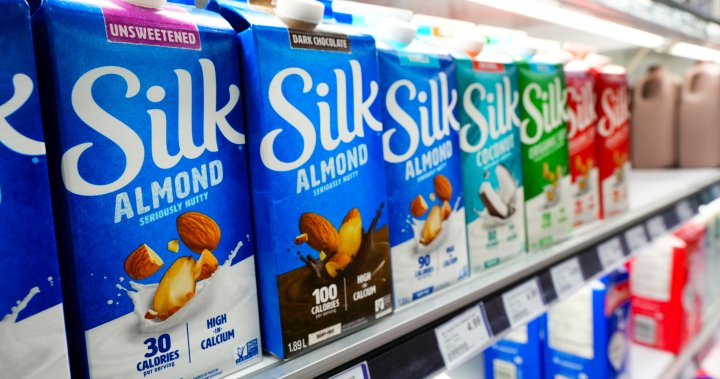Paragraph 1: The Closure of Joriki’s Processing Plants
Joriki, a Canadian company specializing in the processing of plant-based milk, has permanently closed all four of its production facilities. This drastic measure follows a deadly listeria outbreak linked to one of its plants, which resulted in three fatalities between August 2023 and July 2024. The closure affects two plants located in Ontario, one in British Columbia, and another in Pennsylvania, operated by a Joriki subsidiary. The shutdown has resulted in significant job losses, with the majority of Joriki’s employees being laid off. The company, facing financial difficulties and seeking creditor protection, has stated that it lacks the resources to maintain operations and has no plans to reopen the shuttered plants.
Paragraph 2: The Listeria Outbreak and its Aftermath
The Canadian Food Inspection Agency (CFIA) identified a production line at Joriki’s Pickering, Ontario facility as the source of the listeria outbreak. This specific production line was being utilized by Danone Canada, a manufacturer of plant-based milk products. The contamination led to three reported deaths over the course of a year. The link between the contaminated products and the fatalities triggered a comprehensive investigation by the CFIA, ultimately leading to the identification of Joriki’s plant as the origin of the outbreak. This incident severely damaged Joriki’s reputation and contributed to the company’s financial woes.
Paragraph 3: Joriki’s Pursuit of Creditor Protection and Restructuring
Facing significant financial challenges in the wake of the listeria outbreak and subsequent plant closures, Joriki has filed for creditor protection. This legal process allows the company to temporarily shield itself from creditors while developing a plan to restructure its business and address its debt obligations. Joriki intends to use this period of protection to explore various options for its future, including the potential sale of its facilities. The company hopes to find a buyer who can not only acquire the assets but also potentially rehire some of its former employees.
Paragraph 4: The Potential for Acquisition and Re-employment
As part of its restructuring efforts, Joriki is actively exploring potential transactions that would involve the acquisition of its closed processing plants. The company is engaging in discussions with potential buyers, hoping to find a suitable purchaser who can revitalize the facilities and potentially offer employment opportunities to the former Joriki workforce. The successful sale of the plants could breathe new life into the facilities and offer a path forward for the affected employees. However, the outcome of these negotiations remains uncertain, leaving the future of the plants and the livelihoods of former employees in limbo.
Paragraph 5: The Impact on Employees and the Industry
The closure of Joriki’s plants and the subsequent layoffs have had a profound impact on the affected employees and their families. The sudden loss of income and the uncertainty surrounding future employment prospects have created considerable hardship for many. The incident has also sent ripples through the plant-based milk industry, highlighting the importance of stringent food safety protocols and the potential consequences of lapses in hygiene and quality control. The outbreak serves as a stark reminder of the vulnerability of the food supply chain and the critical need for ongoing vigilance.
Paragraph 6: Looking Ahead: Challenges and Opportunities
Joriki faces significant challenges in navigating its current predicament. The company must successfully navigate the complexities of creditor protection, find suitable buyers for its facilities, and address the reputational damage caused by the listeria outbreak. However, the potential sale of the plants also represents an opportunity for a fresh start. A new owner, armed with the lessons learned from Joriki’s experience, could potentially revitalize the facilities, implement enhanced safety measures, and contribute to the continued growth of the plant-based milk industry. The ultimate outcome will depend on Joriki’s ability to effectively manage its restructuring process and attract buyers who are committed to upholding the highest standards of food safety and quality.

